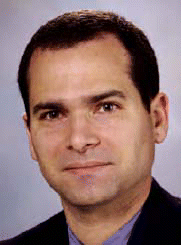In April, a group of investigators at the Jean Mayer USDA Human Nutrition Research Center on Aging at Tufts University published results from two studies investigating micronutrient levels in smokers versus nonsmokers in the American Journal of Clinical Nutrition and Cancer Epidemiology, Biomarkers and Prevention.3,4 In the first study, researchers measured dietary, biochemical, and molecular correlates of folate status in 35 healthy smokers and 21 nonsmokers. After adjustment for dietary differences, the team found that smokers had lower concentrations of folate in the blood and particularly in buccal mucosal cells (the latter amounted to a 50% decrease) than the nonsmokers in the study. In addition, the smokers had lower plasma levels of vitamins B6 and B12 than did nonsmoking study participants. The micronucleus index, an indicator of genetic damage and a surrogate biomarker of cancer risk, was twice as high in the buccal mucosal cells of the smokers as compared to levels from the nonsmokers in the study. However, noted principal investigator Joel B. Mason, MD, Associate Professor of Medicine and Nutrition at Tufts, he and his colleagues were unable to establish a correlation between the diminished folate levels and the presence of micronuclei in the study’s smoking participants. “We found that smoking vastly alters the metabolism of this B vitamin, folate, in the mouth, in a number of ways. But we did not see a connection between these altered levels of folate and the biomarker for cancer that we examined,” he said from his Boston office.
Explore This Issue
December 2006The companion study, using the same 56 participants, established that the chronic cigarette smokers also had lower concentrations of most carotenoids and alpha-tocopherol, but higher concentrations of gamma-tocopherol than nonsmokers. (Alpha-tocopherol and gamma-tocopherol are both forms of vitamin E.) Again, there was no concordance between oral concentrations of the micronutrients and evidence of genetic damage (i.e., micronuclei) in the buccal mucosal cells. Dr. Mason pointed out that the studies’ results do not currently translate into practical recommendations. It is not clear whether replacing micronutrients in smokers, through supplements or dietary interventions, could lower their cancer risk.
Dr. Sturgis commented, “The overwhelming cause of oral cancers is smoking, and the only proven effective way to try to prevent these cancers is to stop smoking. Of course, we all recommend healthy diets, but we don’t have a magic folate pill or other micronutrient supplements that could erase the deleterious effects of smoking.”
Cessation First
The sources interviewed agreed that cessation counseling should top the list of physicians’ messages to patients who smoke. “Continuing to smoke is never a good idea,” said Dr. LaVecchia, and dietary measures, no matter how healthy, cannot replace quitting smoking as a frontline defense against oral cancer.

Leave a Reply